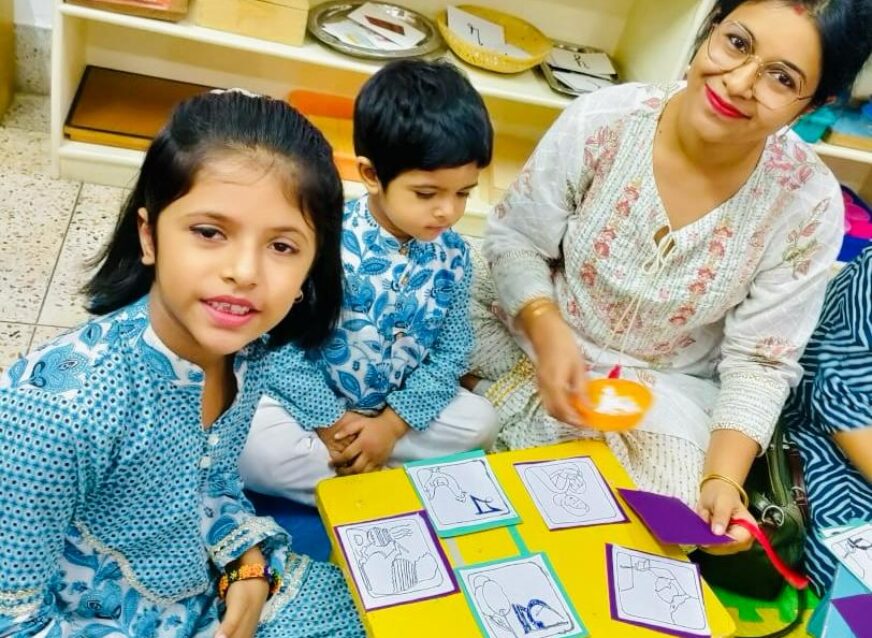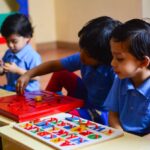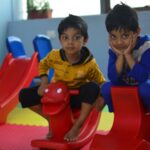
Before Age 2: Montessori-Aligned Skills That Shape Lifelong Learning
Before Age 2: Montessori-Aligned Skills That Shape Lifelong Learning
In the first two years of life, your child’s brain forms nearly 1,000 trillion neural connections—more than double that of an adult. This extraordinary growth coincides with what Dr. Maria Montessori called the “sensitive periods”—windows of heightened receptivity when children are naturally drawn to specific types of learning. By recognizing and supporting these periods, we can offer experiences that align with your child’s developmental needs and unlock their full potential.
At our Montessori-inspired preschool and daycare, we gently guide children through these sensitive periods by introducing purposeful, hands-on activities. The following 20 skills are designed to nurture your child’s independence, empathy, and curiosity while honoring the seven sensitive periods:
Practical Life Skills
Sensitive Periods: Movement, Order, Small Objects, Refinement of the Senses
- 1. Drink from an open cup – Refines coordination and supports independence.
- 2. Clean up toys and books – Reinforces order and responsibility.
- 3. Use real dishes – Encourages care for objects and fine motor control.
- 4. Wash hands and face – Builds autonomy and sensory awareness.
- 5. Dress with assistance – Supports movement and body awareness.
- 6. Use words or signs to express needs – Aligns with language development and emotional expression.
- 7. Sit at a child-sized table – Promotes independence and a sense of belonging.
- 8. Carry lightweight items – Strengthens purposeful movement.
- 9. Wipe up spills – Teaches care for the environment and problem-solving.
- 10. Brush teeth with assistance – Introduces self-care routines and sensory refinement.
Language and Social Development
Sensitive Periods: Language, Social Behavior, Order
- 11. Name body parts – Expands vocabulary and self-awareness.
- 12. Be gentle with people – Cultivates empathy and emotional intelligence.
- 13. Help put clothes in the laundry – Encourages contribution and teamwork.
- 14. Be courteous when behind – Introduces basic social etiquette.
- 15. Explore nature calmly – Builds sensory awareness and respect for living things.
Cognitive and Emotional Growth
Sensitive Periods: Order, Movement, Language, Social Behavior
- 16. Follow a simple one-step direction – Strengthens listening and comprehension.
- 17. Practice patience – Teaches emotional regulation and turn-taking.
- 18. Adhere to daily routines – Provides structure and predictability.
- 19. Open and close containers – Boosts fine motor skills and curiosity.
- 20. Be gentle with pets and plants – Nurtures compassion and responsibility.
Why These Skills Matter
These skills aren’t about mastery—they’re about exposure. Offering consistent, loving opportunities to practice them during sensitive periods helps children build neural pathways that support lifelong learning. In a Montessori environment, we prepare the space to meet the child’s needs, model behaviors with patience, and celebrate effort over outcomes.
How You Can Support at Home
- Create a predictable routine with visual cues.
- Offer child-sized furniture and tools.
- Narrate daily tasks to build language.
- Allow time for your child to try, fail, and try again.
- Model kindness, patience, and curiosity.
By embracing these practices, you’re not just teaching tasks—you’re nurturing a whole child. And in doing so, you’re helping them build the confidence, empathy, and independence that will serve them for years to come.











